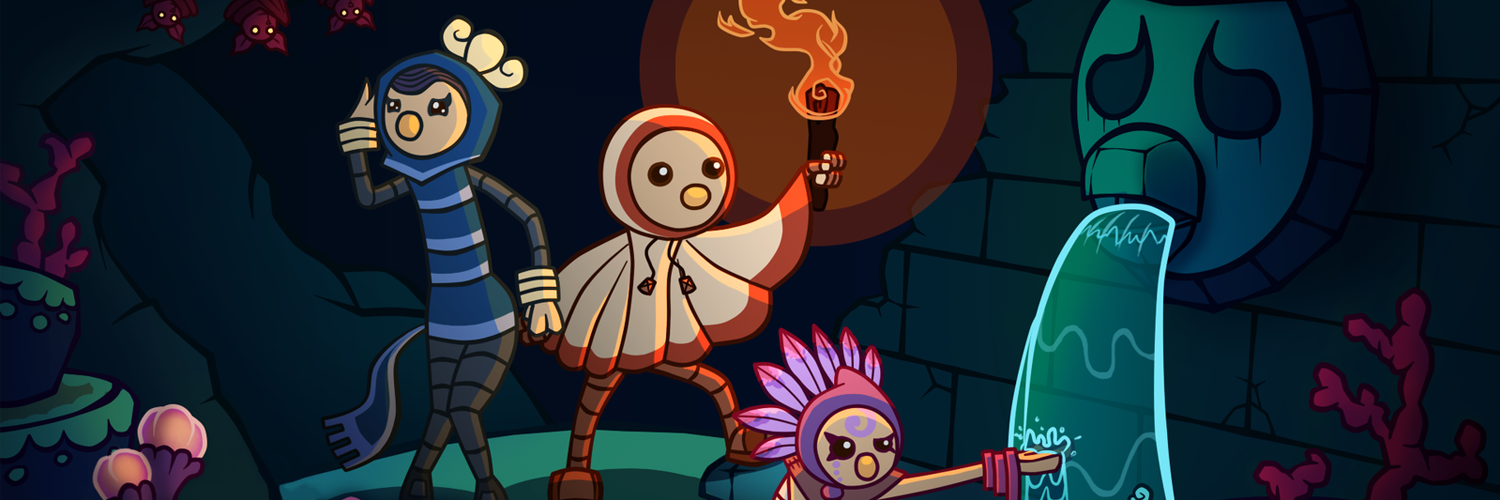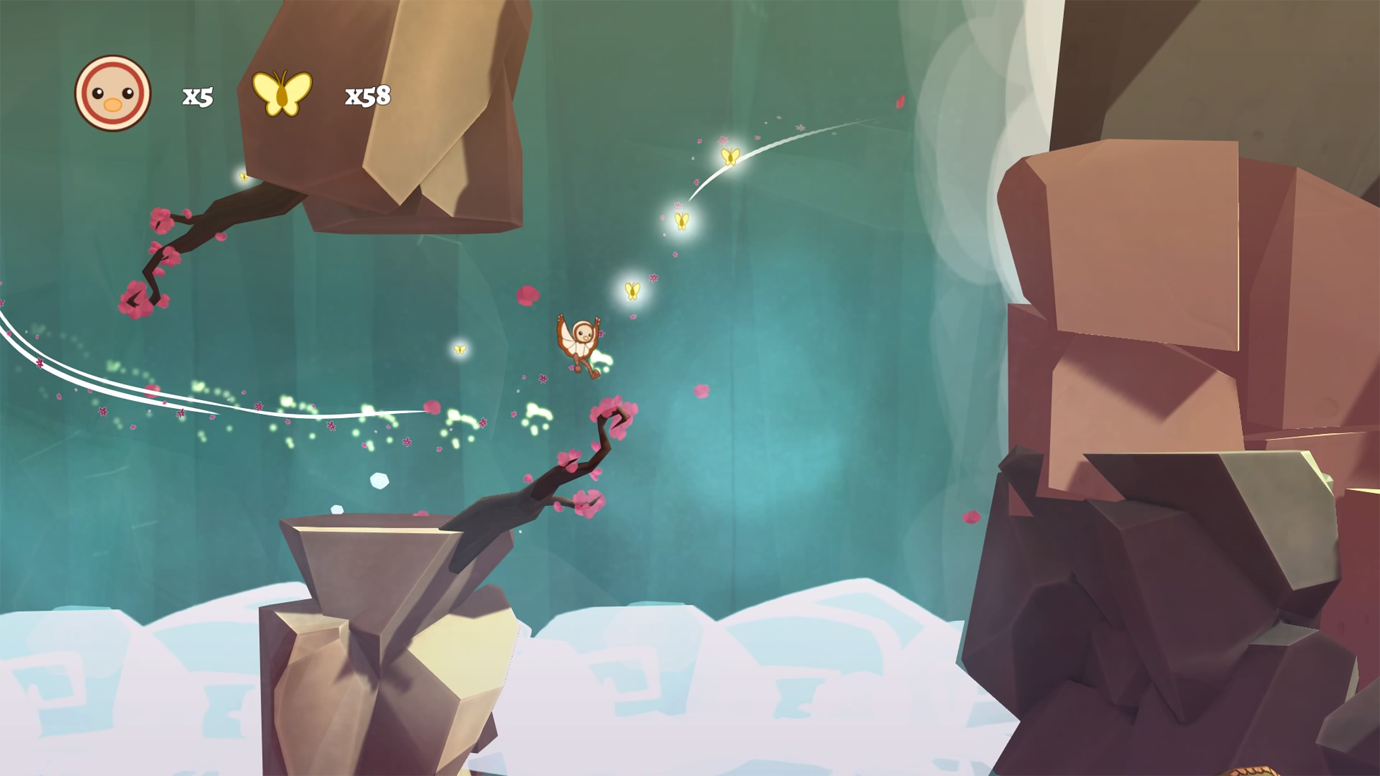
Shu Switch Review
I’m a lover of platforming games (whether it be 2D, 3D, or anything in between) but being such a popular genre there’s a lot of average titles released that don’t offer anything new or exciting. Sadly, it turns out Shu is more like one of those. With a fast and shallow story regarding an ancient evil encompassing the world and Shu attempting to save it by waking some kind of musical temples, it’s made obvious right away that the gameplay is what we’re here for. And it’s fun, sure, but also rather generic. Whilst running, jumping, and gliding come naturally to Shu, double-jumping, opening platforms, riding air-tunnels, ground-slamming obstacles, and all the usual ‘special’ platforming mechanics are granted only temporarily and not all at once. Instead of a steady climb in difficulty with the acquisition of abilities, each of the five main locations contain two new stranded villagers that each bestoy a different power when recovered. For example, the second area has wall-jumping and running across usually hazardous water, whereas the third area has double-jumping and activating lifts, and so on.
Due to this frequent switching of abilities and the short overall length of the game, the levels all feel way too easy because there’s never enough of a learning curve to be built upon – the player and the mechanics are never pushed or tested in any way. Of course, games don’t have to be challenging to be fun but it’s the lack of any kind of uniqueness or flavour to Shu that hurts it. There are a bunch of chase sequences with the big bad following closely behind, but even those get old when there’s one every other level and all it really means is ‘don’t dawdle’. The six originally-DLC stages do at least shake things up a little by mixing-and-matching villagers from different areas together, so there’s a stage with water-running and double-jumping etc. Once again, however, the maximum of two stacked mechanics and overly-simplified platforming stops the game from building on itself. The best level by far is the final one of the main game where the pairs of villagers are swapped out mid-chase, requiring a bit of proficiency in every area, but at that point it’s too little too late and is never expanded on.

Of course, as in any self-respecting platformer, there are also collectibles in each of the twenty-one levels. There are six babies (or ‘babbies’, as the game calls them) to save, which are mostly pretty easy to find besides the obnoxious few that are literally hidden behind falling debris during a chase section. There’s also 100-500 butterflies to collect and usually a piece of a picture – the more difficult item to find and one that often involves a little extra platforming. Still, I beat all the stages with everything collected in ~4 hours or so. The ‘no deaths’ and time trial challenges each level pose do add some replayability and are a bit more trying, but I still felt there was something missing. What I’m getting at is that, whilst Shu feels meager in most areas, it has a solid foundation. It looks nice but everything just sort of blends together, it sounds nice but the music doesn’t always seem to highlight the mood, and it plays nice but the levels don’t feel like much design thought was put into structuring them. That’s all there really is to say about it – the gameplay is all platforming, no combat or anything else, and it’s very, very basic.
I believe Shu is truly a victim of its time. The flaws it has aren’t really flaws – the game plays fine. It’s the fact that everything it does has already been done better that’s the issue. As mentioned before, this problem likely stems from the oversaturation of platformers in recent years and that we’re simply worn out on them – they need to boast something special to stand out at all, even if it’s underdeveloped, even if it’s just polish. From the classic indies like Limbo and Braid, to the bigger triple-A marvels like Rayman Legends and the Mario games. There are puzzles games like Trine, action/adventure games like Guacamelee, story games like Night in the Woods, challenging games like Salt and Sanctuary, and all manner of metroidvanias. There are games in this genre to satisfy every want and need. Damn good ones, too. A basic platformer with the same old clichéd mobility tools and a pretty underwhelming world to be a part of just isn’t enough to make its mark these days, making Shu feel a little played out. It’s by no means a bad game, but hardly a good one either; it falls quite neatly into the comfortable, average middle-ground.
